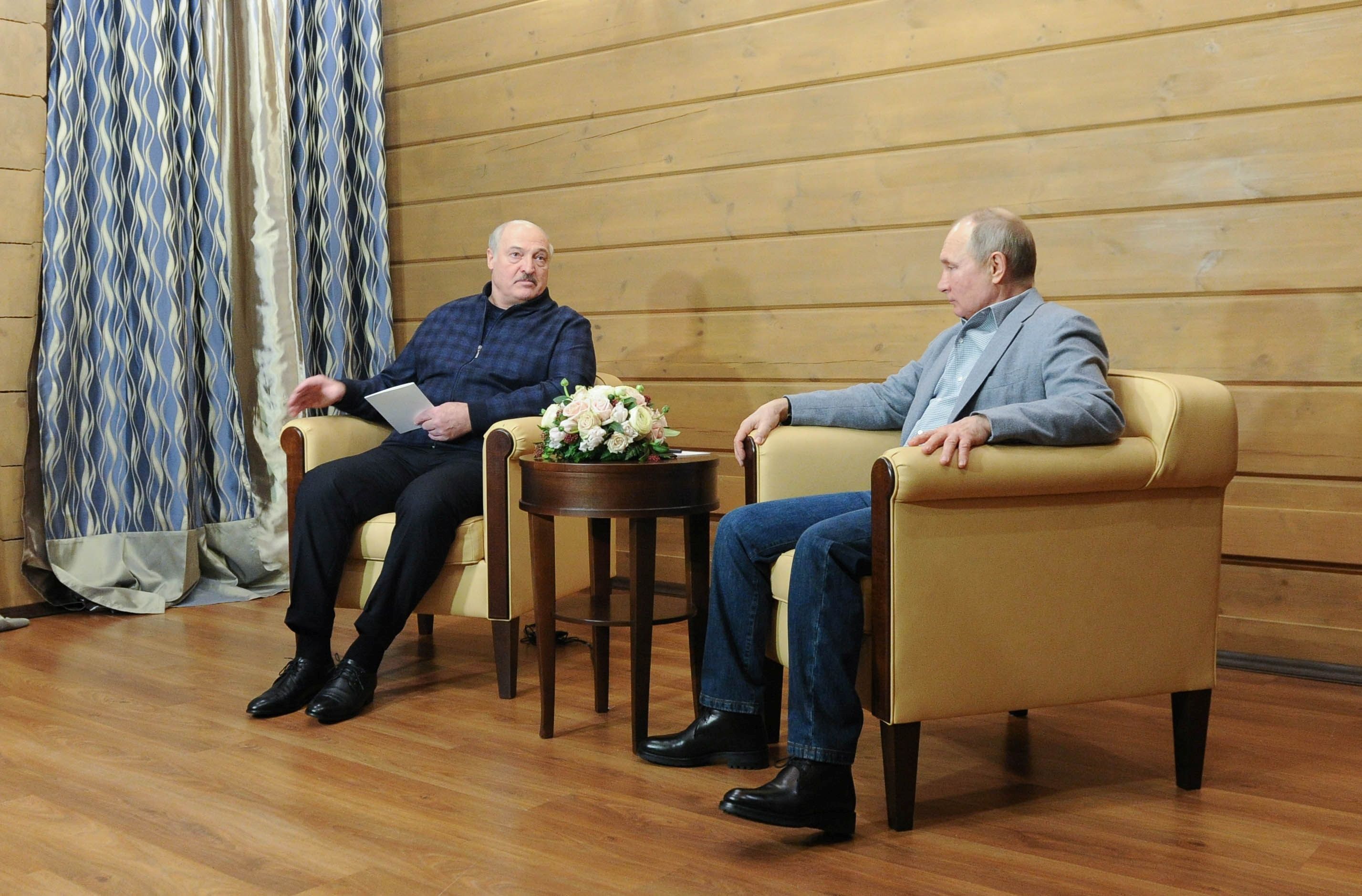Towards Deeper Integration—Lukashenka’s Visit to Sochi

What was the context of the visit?
The working meeting on 22 February in Sochi was preceded by a series of meetings and talks between the two countries. On 20 February, the prime ministers of Russia and Belarus, Mikhail Mishustin and Roman Golovchenko, respectively, spoke by phone. The main topic was increasing economic cooperation, including the sale of Belarusian petroleum products via the Russian port of Ust-Luga (previously, Belarus used ports in Lithuania and Latvia). The two states also agreed the date and course of the Zapad-2021 drills and further use (until 2046) by Russia of two military facilities located in Belarus—a radiolocation station in Hancevichi and the 43rd Communications Centre for nuclear submarines in Vileyka. Before the meeting, the All-Belarusian People’s Assembly was also held, at which time it was suggested that Belarus should withdraw from developing its policy of neutrality and should turn towards Russia.
What was discussed?
The primary focus of the talks between Putin and Lukashenka was the deepening of the integration of both countries. They focused on economic issues, in particular bilateral trade, cooperation in the construction and operation of the Belarusian Nuclear Power Plant, and maintaining the demand for Russian gas in connection with the plans to build another enterprise producing nitrogen fertilisers in Hrodna. They also raised social and scientific cooperation, including confirming information that Russia has provided Belarus with the technology to produce a vaccine against COVID-19.
What did the course and results of the meeting show?
The informal nature of the meeting (both leaders went skiing after the talks) was supposed to show the very good state of relations between Belarus and Russia. At the same time, the subject of the talks shows that the “roadmaps” of Belarusian-Russian integration are very advanced. According to Lukashenka, they were to be revised, and the majority of them (about 24 out of 30), including those concerning military integration, are already agreed. Therefore, it can be expected that they will be signed in the coming months. This will mean that the Belarusian authorities will adopt a common customs and tax code tailored only to the realities of the Russian economic and legal systems, which in turn will require the harmonisation of legislation and the judiciary in these areas.
What will be the consequences of the Sochi arrangements?
The deepening of economic and military integration with Russia will mean a gradual limitation of Belarusian sovereignty in its foreign and defence policy, cancelling the previous aspirations to pursue a “multi-vector” and neutrality policy. It will also require Belarus to adopt a part of the Russian legal system, over which further changes it will not have influence. This will mean privileging Russian entities on the Belarusian market, which, among others, gives the former access to cheaper raw materials than purchased in Russia.
For the EU and NATO, the Russian-Belarusian arrangements indicate a further limitation of cooperation with the Belarusian authorities, both in the political and security spheres. Despite Belarus’ declaration of willingness to cooperate within the OSCE, it will also be difficult to work within this organisation, which Poland will chair in 2022. The progressive integration of the two countries will also make it more difficult to provide support to Belarusian society.


